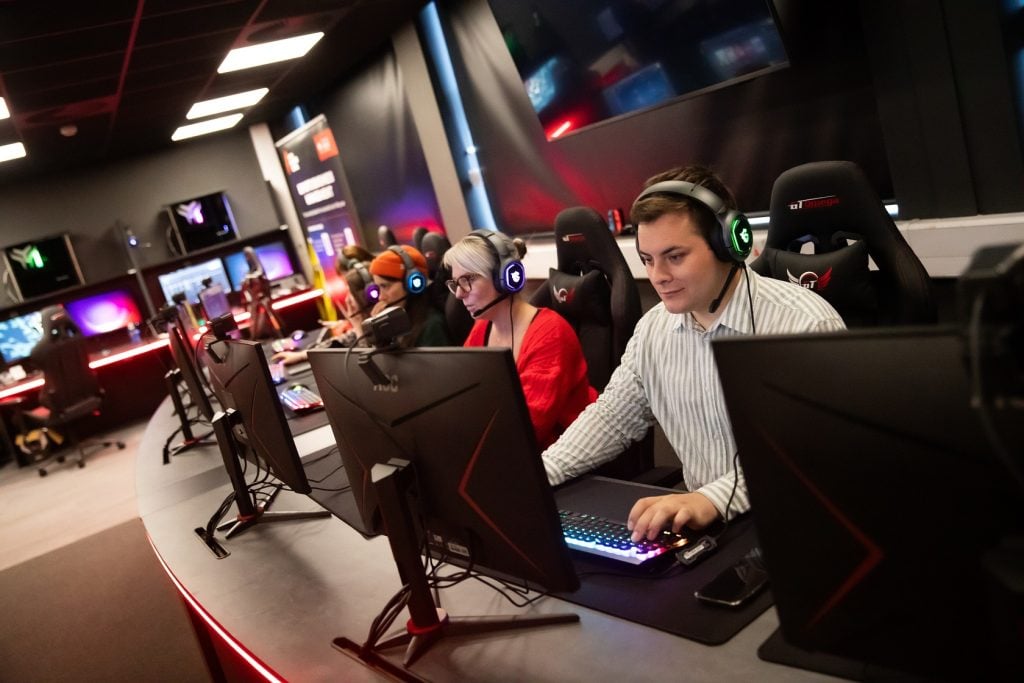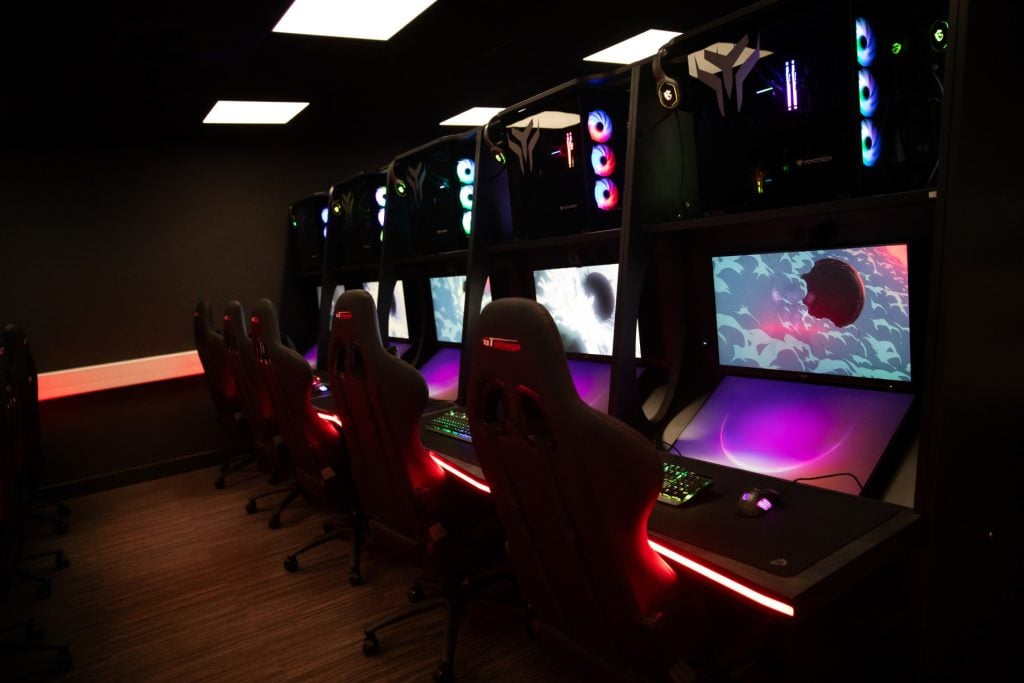
To an outsider who is not as familiar with the inner workings of the esports industry, it might seem like the number one criteria for entering it is — playing games, or at least having experience in playing games. With that skill present, everyone interested in esports can easily find jobs and careers in the industry and work for organisations, agencies and other brands, right? Well, not quite.
One big misconception in esports is that it is entirely game-focused. Sure, the mythical ‘esports game’ and the players are at the centre of everything, but the rest of the industry is built on top of this foundation. As such, individuals a part of the industry require the skills to push the sector forward, something universities in the UK, such as the University of Salford, have identified.
Esports organisations need fans and sponsors to be sustainable, tournament organisers need top-tier production to be attractive for audiences, and every company needs stable leadership and management. For that reason, esports should be viewed as a crossover between the entertainment and sports industries, not just one or the other.
Interestingly, the main personnel issues that the esports industry has right now — a high number of passionate enthusiasts that have developed within the sector — have been a part of many rapidly developing industries. In the early days of the Silicon Valley startup boom, a lot of founders were simply graduates of engineering or computer science. That knowledge, and networks from their collegiate days, helped them craft impressive ideas. However, Facebook, Google, PayPal and others all had issues in scaling initially.
Sure, these individuals knew computer science, but what lacked was skills in other fields of business. These include learning how to write proper documentation, managing people and how to sell a product to investors and partners. All those skills are widely regarded as important, and educational institutions teach these to people who are interested in working in the tech industry.
If you imagine the tech scene 20 years ago, that is where esports is right now.
Given the young age of the esports industry, there have been a lot of people who jumped in with just a pure passion for the scene. However, as esports has grown towards professionalisation, more specialised skill sets have become essential. This has led to many prominent esports stakeholders to fill this vacancy by appointing specialists from other industries such as entertainment and sport.
Without proper education or work experience, it is now hard to become a valuable asset to an employer. Yes, an esports organisation is focused on gaming, but it is also focused on generating revenue, building a brand and creating a sustainable business model. As a result, dedicated people that know a specific set of skills, need to be at the helm of important divisions. These skills can be garnered through education — through specialised courses or universities. Developing skills inside the industry has always been an option, but one that relies on luck, as well as a valuable network.
Drawing another parallel to the startup and tech industries, a large number of esports stakeholders in high positions in these industries are there ‘from the start’, and have learned about management, human resources, payments and legal doings all by simply being forced to do it. Many of them were former players or managers of teams that are now leading some major teams or companies. Some of these talented individuals have learned things as they went along, because without it the companies would not be able to stay afloat easily.

While it is admirable that some organisations have senior leadership that has been ‘in the trenches’ for a long time, organisations and companies navigating the modern esports landscape can not rely on an influx of low-skill workers who lack specialised skills. Esports companies now need people who know how to work in technology, design, branding, coaching, management and other spaces, but also love and enjoy esports.
Transferable skills are pretty much the basics of every current job in technology or any kind of management. These skills can also be the basis of learning for esports enthusiasts at the start of their management careers, as well as players who are looking for a solid base to build on once they stop playing. Enrolling in a course that provides a player with the foundational skills in both business and management, in an esports context, can also provide a massive boost to the careers of those wanting to enter the esports industry from a business perspective.
There are now courses that aim to solve this exact problem for students looking towards the esports industry with starry eyes. Courses like the Esports Business Management course at the University of Salford, aim to teach the business side of esports first and foremost to help young people navigate the industry. The course will see students go through two years of education that teaches them valuable transferable skills, whilst also providing them with a network and practical esports experiences. Even if esports does not end up being the ideal career, these transferable skills can also be applied to adjacent fields, highlighting the key goal of education.
Like most young sectors, a correct balance between those with passion and those with defined skills will bolster the scene. Developing those who have both is crucial.





